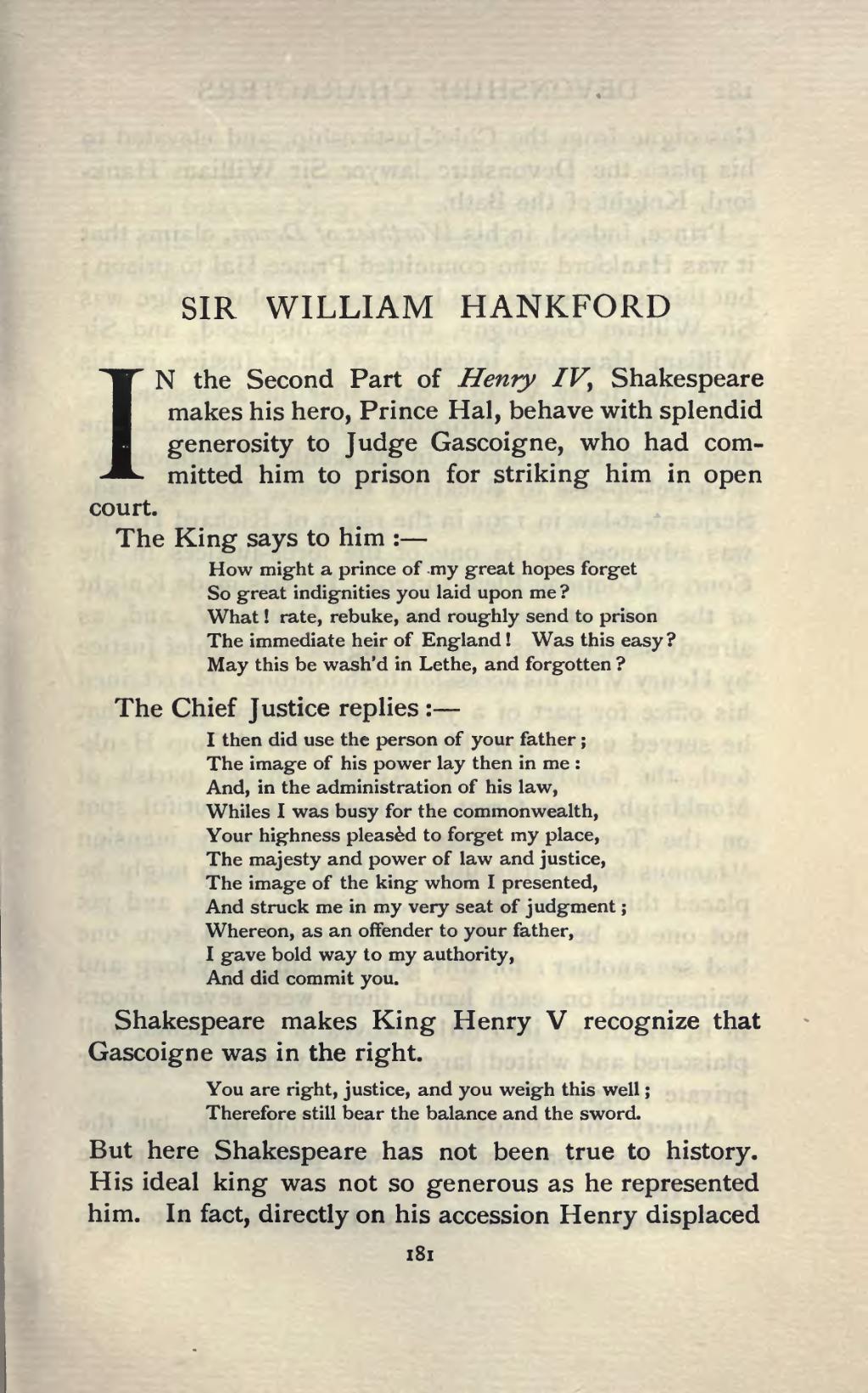SIR WILLIAM HANKFORD
IN the Second Part of Henry IV, Shakespeare makes his hero, Prince Hal, behave with splendid generosity to Judge Gascoigne, who had committed him to prison for striking him in open court.
The King says to him:—
How might a prince of my great hopes forget
So great indignities you laid upon me?
What! rate, rebuke, and roughly send to prison
The immediate heir of England! Was this easy?
May this be wash'd in Lethe, and forgotten?
The Chief Justice replies:—
I then did use the person of your father;
The image of his power lay then in me:
And, in the administration of his law,
Whiles I was busy for the commonwealth,
Your highness pleased to forget my place,
The majesty and power of law and justice,
The image of the king whom I presented,
And struck me in my very seat of judgment;
Whereon, as an offender to your father,
I gave bold way to my authority,
And did commit you.
Shakespeare makes King Henry V recognize that Gascoigne was in the right.
You are right, justice, and you weigh this well;
Therefore still bear the balance and the sword.
But here Shakespeare has not been true to history. His ideal king was not so generous as he represented him. In fact, directly on his accession Henry displaced
181

